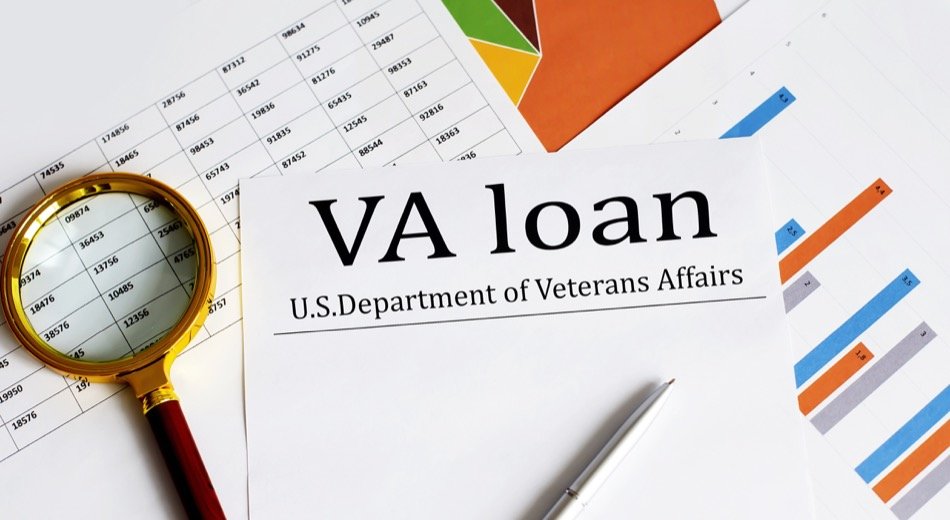Understanding the VA Funding Fee: Exemptions and How to Pay
Posted by Lauren Schneider on Tuesday, January 19th, 2021 at 9:44am.
 Those who are active or retired members of the US military looking to buy or refinance a home often consider going through the Department of Veterans Affairs. VA loans are excellent options with low down payments and interest rates, but there are certain funding fees that accompany them. The following information explains the purpose of the VA funding fee, exemptions, and how to pay.
Those who are active or retired members of the US military looking to buy or refinance a home often consider going through the Department of Veterans Affairs. VA loans are excellent options with low down payments and interest rates, but there are certain funding fees that accompany them. The following information explains the purpose of the VA funding fee, exemptions, and how to pay.
For informational purposes only. Always consult with a licensed real estate professional before proceeding with any real estate transaction.
The VA Funding Fee Explained
The VA funding fee aims to help keep this loan guaranty program in operation for future veterans and military homebuyers for generations to come. The fee goes directly towards covering any losses the program experiences.
While the funding fee rate fluctuates from year to year, it averages around 2.5 percent of the amount borrowed for first-time VA loan applicants, and increases to around 3.5 percent for repeat users of the program. However, the funding fee rates are reduced when 5 percent or more down is paid at closing.
Some borrowers might be exempt from paying VA funding fees entirely. In the past, National Guard and Reservists paid slightly higher fees.
Purchase Loans and VA Funding Fees
As mentioned earlier, the funding fees are lower for borrowers who can put 5 percent or more down on the home at closing. Those who have used the VA loan program previously will likely pay a bit more, but this might not be the case, should the borrower pay 10 percent down or more. Regardless, the bigger the down payment, the lower the funding fees and interest will be.
Options for Refinancing VA Loans
There are two ways to refinance a VA loan: through a VA cash-out refinance or an Interest Rate Reduction Refinance Loan (IRRRL). The difference between the programs is essential to their purpose. Cash-out refinancing allows people to refinance their loan and take out cash from equity. IRRRLs allow VA loan holders to get a better mortgage rate or transfer from an adjustable rate loan into a fixed-rate mortgage.
VA Funding Fees for an Interest Rate Reduction Refinance Loan
Those who aren't exempt from funding fees that use the IRRRL will pay .5 percent, no matter how many times they have used the option or their service history. This is an excellent option for borrowers looking to refinance at a reduced interest rate to lower monthly loan payments.
Cash-Out Refinance Funding Fees
Cash-out refinancing funding fees typically fall in line with the rates of a standard VA-backed purchase loan, with ranges between 2.5 percent and 3.5 percent. This refinancing option allows borrowers to receive cash funds against their home equity and use the money for other needs. Common reasons to cash out equity include:
- Making home improvements
- Paying off debts
- Educational expenses
- Investing
In addition to funding fees, it's essential for buyers to be prepared for closing costs that will also be due, which can be a large sum depending on the amount of the home loan being refinanced.
VA Funding Fee Exemptions
There are a few exemptions that allow certain qualified applicants to bypass funding fees on both their home purchase and refinancing loans. VA funding fee exemptions include:
- Veterans deemed eligible for compensation as declared by a pre-discharge examination or review
- Veterans currently receiving financial assistance for service-related conditions
- Veterans that qualify for compensation but are not receiving it due to active duty
- Veterans who qualified for disability compensation but opted for retirement pay
- Recipients of the Purple Heart
- Surviving spouses that are VA loan eligible
Those who qualify will need a Certificate of Eligibility or a VA funding exemption fee form to show their lender. For veterans receiving retirement in place of VA compensation, lenders can use disability notices and forms indicating retirement income.
When and How to Pay VA Funding Fees
Control over whether one has to pay funding fees isn't up to the mortgage lender, nor do they have any say over the amount due. The VA will let borrowers know the total of their funding fees, and this amount will be due at the time of closing on the refinancing agreement. However, the lender will collect the fees and send the payment directly to the VA office.
Funding fees can be paid directly out of pocket, or buyers can request that sellers pay the amount on their behalf. Another option is for the buyer to ask the lender to finance the VA funding fee over the loan's life to alleviate high up-front costs upon closing or refinancing.
Looking to Secure or Refinance a VA Loan?
Those looking to buy a home or refinance a home with the assistance of a VA-backed loan can contact an experienced real estate professional who can offer guidance from start to finish while helping them find the perfect dwelling.
For informational purposes only. Always consult with a licensed real estate professional before proceeding with any real estate transaction.
